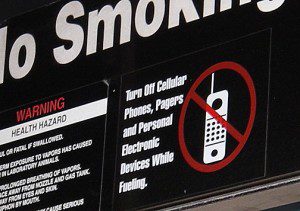I’ve been following a fascinating conversation that began with Jenna Wortham’s article in the New York Times: “Turn Off the Phone (and the Tension),” also called “Cutting the Digital Lifeline and Finding Serenity.” In this article, Wortham described the challenge and joy of disconnecting from the digital world, at least for a few hours.

Wortham’s discovery began by accident, when she was put in a situation where she could not have her cell phone with her. At first, she felt anxious, cut off from her digital drug. But, in time, she began to enjoy her disconnection:
Eventually, the anxiety passed. I started to see my lack of a digital connection as a reprieve. Lounging in the sun and chatting with a friend without the intrusion of texts and alerts into our lives felt positively luxurious. That night, I even switched off my phone while mingling at a house party, content to be in one place for the evening and not distracted by any indecision about whether another party posted online looked better.
Wortham recognizes that some people would not understand her experience of offline solitude:
My revelation — relearning the beauty of living in the moment, devoid of any digital link — may seem silly to people who are less attached to their devices. But for many people, smartphones and social networks have become lifelines — appendages that they are rarely without. As such, they can sway our moods, decisions and feelings.
Given what I have witnessed at Laity Lodge, where cell phones still do not work, I’d agree with Wortham that many people are so accustomed to living in fellowship with their digital devices that they don’t quite know what to do without them.
Yesterday, Wortham published a follow-up article, in which she notes and responds to some of the responses her article stirred up. “The End of the Offline World as We Know It?” She is especially intrigued by a critique from Nathan Jurgenson, a grad student in sociology at the University of Maryland. According to Jurgenson,
“This idea that we are trading the offline for the online, though it dominates how we think of the digital and the physical, is myopic. . . . It fails to capture the plain fact that our lived reality is the result of the constant interpenetration of the online and offline.
“It’s not real unless it’s on Google pics or it didn’t happen. . . . We aren’t friends until we are Facebook friends. We have come to understand more and more of our lives through the logic of digital connection. Social media is more than something we log into; it is something we carry within us. We can’t log off.”
Is this true? Is this true for you? Or is Jurgenson speaking for himself and his generation? Or is he simply a grad student who needs to get a life? What do you think?
If you’re someone who regularly connects online, have you tried to disconnect for a while? What happens when you do this?












